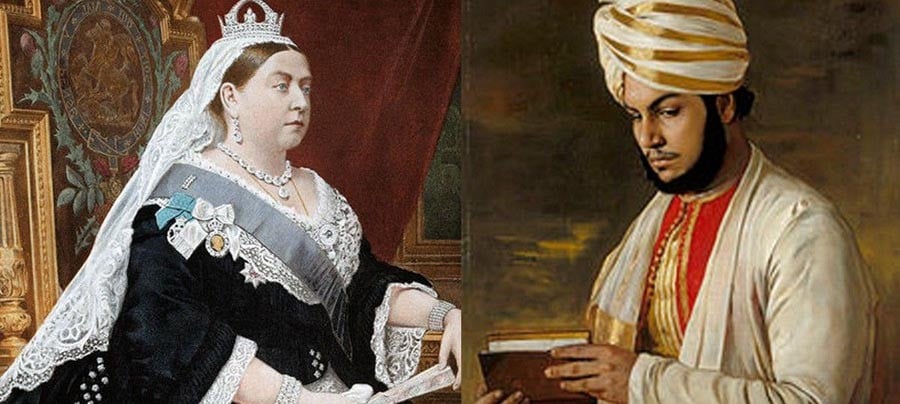
The story of Queen Victoria’s Munshi comes to the screen

Queen Victoria, the 19th century monarch, who ruled Britain for almost 64 years, is now ruling the screen.
After the popularity of the films Mrs Brown and Young Victoria, and the tv series Victoria, yet another film about the monarch is to be released this autumn.
The new film is based on Shrabini Basu’s book Victoria and Abdul, which tells the story of the rather unusual friendship between the ageing queen and her ‘Indian servant’ Abdul Karim, who was sent to her as a sort of golden jubilee gift and who stayed with her till her death in 1901. Appointed to the clerical position of the queen’s munshi, Abdul Karim tutored Victoria in Urdu, talked to her about India (of which she had made herself empress at 18), introduced her to curry and even cooked for her. He became her friend and her confidant and as a result angered both Victoria’s family and her court.
The queen’s munshi was regarded as a rogue and an opportunist, insulted and racially abused, and sent back to Agra after the queen’s death. But he was removed not just from court but also from history. Victoria’s daughter Princess Beatrice censored her mother’s journals and edited him out of her story completely. Abdul Karim was erased from history and would have remained in obscurity were it not for Basu chancing upon his story.
Basu discovered several portraits and a bust of Abdul Karim on a family visit to Queen Victoria’s holiday home on the Isle of Wight more than a decade ago. The family had gone to see the restored ‘Darbar Room’ and that was where she was intrigued by the portraits of the thoughtful looking Indian, holding a book and portrayed as a nobleman rather than a servant.
Over the course of the next few years, Basu was able to make a number of discoveries, which helped her to uncover the story of Victoria and Albert. She went to Windsor Castle and asked to see Queen Victoria’s Hindustani journals, through which she learnt not just about the queen’s Urdu lessons but also about what sort of interaction and conversations the queen had with her munshi -- visiting him and his wife for tea, going to visit him when he was ill.
Basu was also able to find Abdul Karim’s own journals: he and his wife had had no children, but Basu was able to trace his nephew’s descendants and relatives to Karachi where she found that the munshi’s journals were in a trunk in their storeroom.
This was a crucial discovery: not only did the munshi’s letters give his side of the story but they also helped contextualise many parts of the queen’s own journals.
Basu’s discovery and all the research led to her book, and then to the film Munshi, starring Judi Dench and Ali Fazal. The book is now being republished to coincide with the release publicity for the movie.
The rediscovery of Abdul Karim gives us insights into not just Queen Victoria’s personality and attitudes but also into the prejudices and concerns of that age. The idea of an Indian munshi acting as friend and confidante to the empress did perhaps not sit well with those who were at that time intent on impressing the Indians that they were subjects -- lowly and subordinate -- of the British monarch.
Hopefully, the new film will be able to convey all the political and social nuances of the fascinating story of Victoria and Abdul that Basu has pieced together.
Best wishes